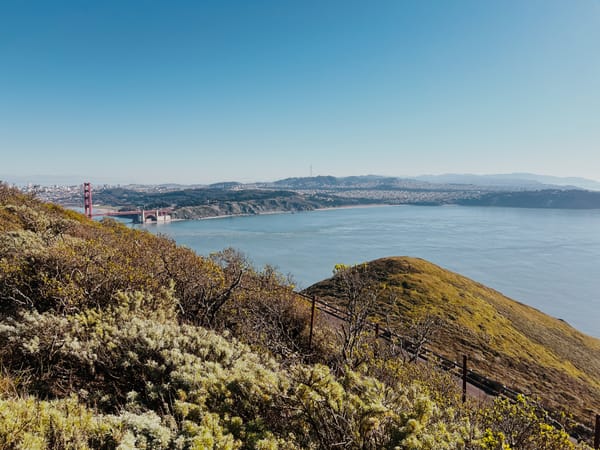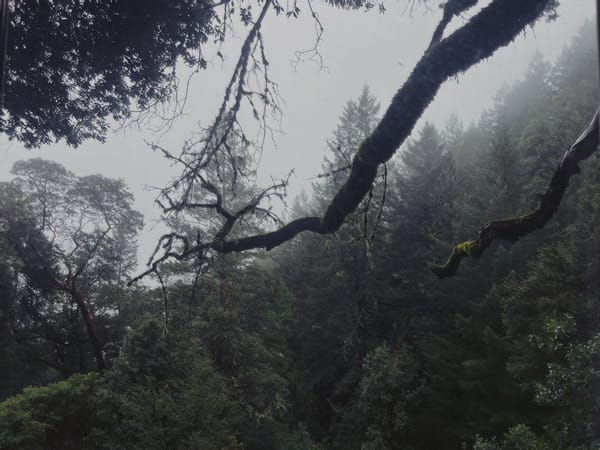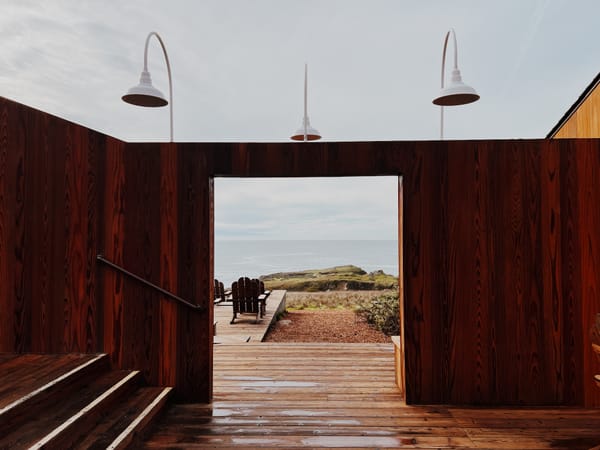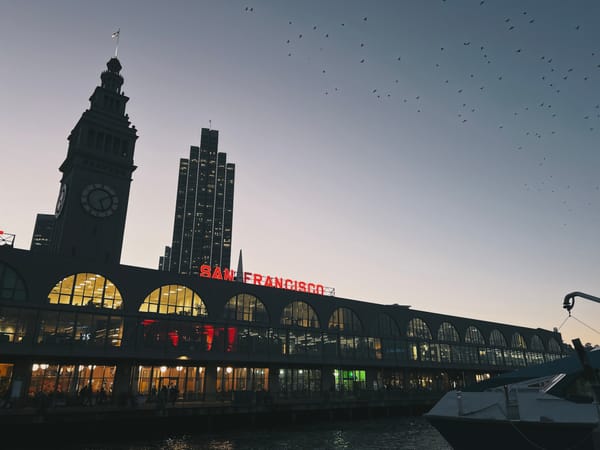Taking care of ghosts
When grief is like marine layer (and: slowing down in urgent times).
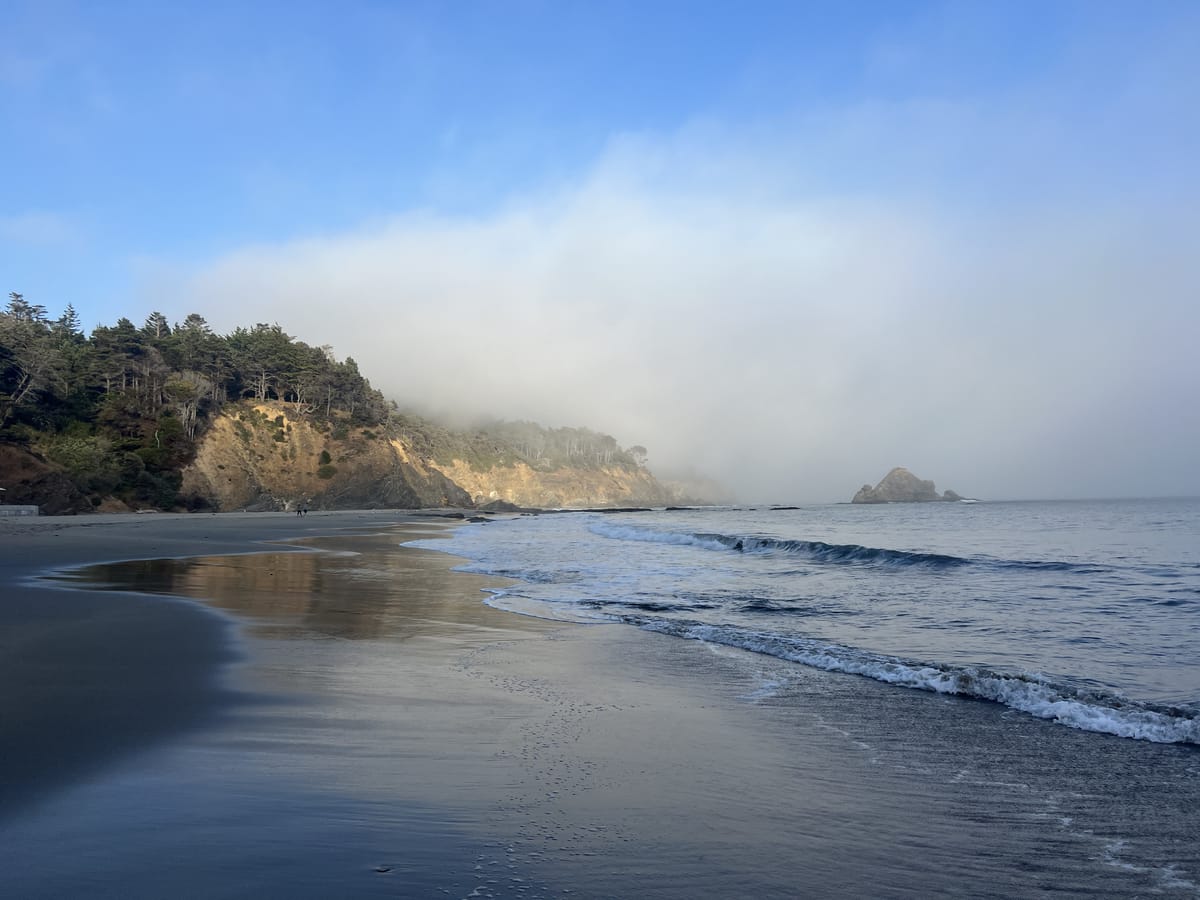
When my dad died in 2022, the grief came in a sequence of waves, the violent, toppling kind.
I was bent over, crying. Or drinking myself into a stupor with even more enthusiasm than had previously been the case.
Today, grief is present but it’s different, more diffuse. Like the marine layer (fog) on California’s coast, it comes and goes with varying shades of intensity — from milkshake-thick to the laciest veil stretched across bright sky.
There is much to grieve about. Not just losing Dad (and, in May, my father-in-law, too). An incomplete list: genocide and war, an over-heating planet, imperilled biodiversity, intolerance and bigotry, liberal sclerosis/timidity/complicity, corruption, the white ant-ing of democracy, and the contempt by political elites (and their avaricious, moneyed backers) for the poor, marginalized and vulnerable.
I’m grateful, though, that right now, the grief isn’t incapcitiating. That, amidst it, are shocks of gratitude, humour and joy. I’m grateful that I’ve come to see it as something to make space for, to learn from and listen to—rather than to try to ignore, numb or obliterate.
- What kinds of grief are you carrying? And how are you responding?
“the times are urgent; let us slow down”
After a period of intense work and travel, things have slowed down a little. And, fittingly, I’ve found myself reflecting the words by Dr. Bayo Akomolafe (a philosopher, psychologist, professor, and poet) about slowness. In an essay titled “A Slower Urgency” he wrote:
I learned, a long time ago, about a particular saying from the continent I grew up on: “the times are urgent; let us slow down”.
The first time I heard this African saying, I knew I had happened upon something important – something that needed to be shared at this time when the theme of urgency, the subject of the eleventh hour, and the prospects of an apocalypse scenario (World War III? Climate change disaster? Hadron collider mishap? Trump?) are now familiar tropes in our conversations about the future.
Akomolafe noted that slowing down “seems like the wrong thing to do when there’s fire on the mountain”. But he argued that doing so in times of emergency is all the more important:
[I]n ‘hurrying up’ all the time, we often lose sight of the abundance of resources that might help us meet today’s most challenging crises. We rush through into the same patterns we are used to. Of course, there isn’t a single way to respond to crisis; there is no universally correct way. However the call to slow down works to bring us face to face with the invisible, the hidden, the unremarked, the yet-to-be-resolved. Sometimes, what is the appropriate thing to do is not the effective thing to do.
Slowing down is thus about lingering in the places we are not used to. Seeking out new questions. Becoming accountable to more than what rests on the surface. Seeking roots. Slowing down is taking care of ghosts, hugging monsters, sharing silence, embracing the weird.
- Read the rest of “A Slower Urgency”
GRIEF IN THE LIMELIGHT
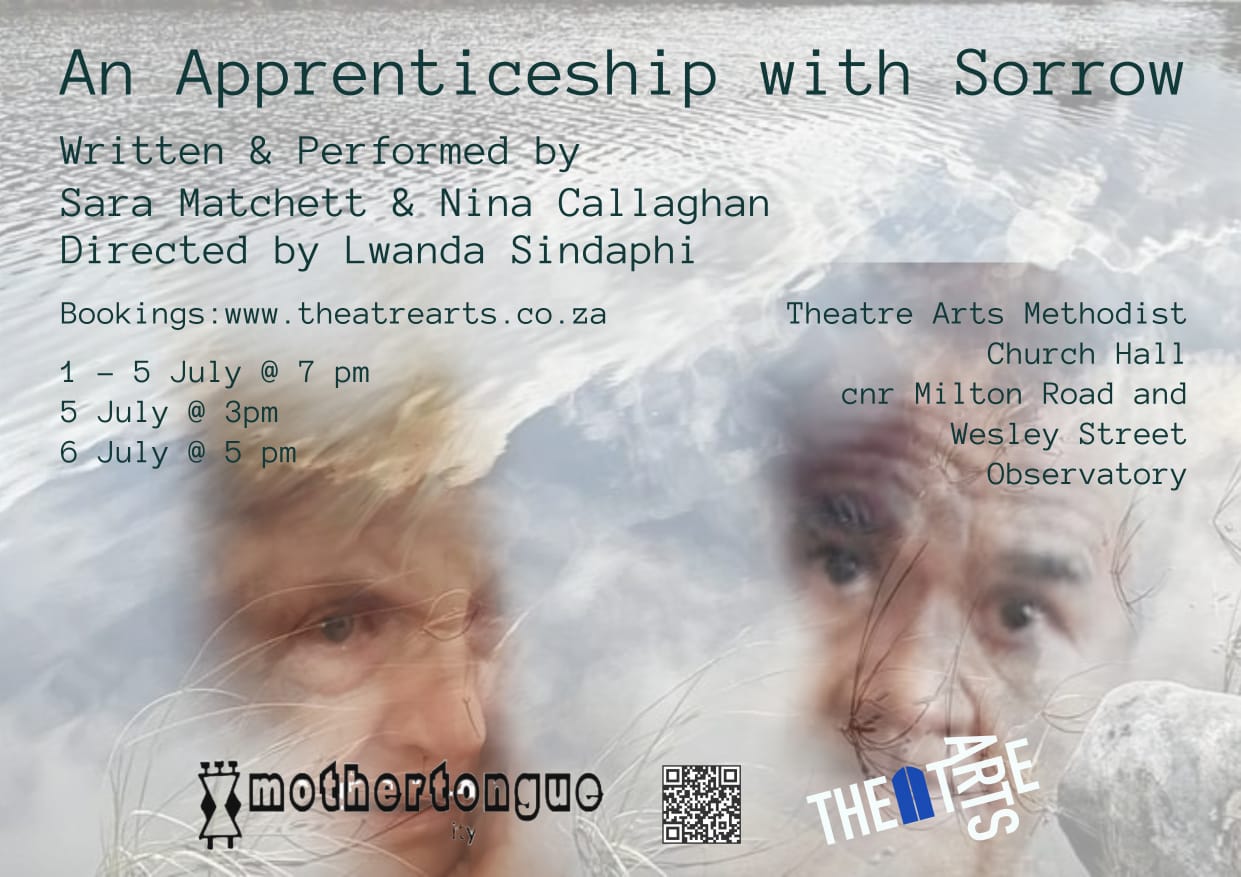
If I was in Cape Town this week, I’d be heading Nina Callaghan1’s play. If you’re in town, I encourage you to see it! The details:
Using the personal experience of losing loved ones to dementia, the performance reflects on wider planetary collapse brought about by climate change and the global polycrisis.
Through embodied and sonic performance, it asks: How are human and ecological systems interconnected? Can somatic intelligence foster resilience? Can reframing grief as collective mourning create pathways for renewal?
This work invites audiences to reimagine collapse as a space for connection, transformation, and emergence.
Nina shared about the production: “This has been a trek my siel uit2 process...going to the site of my personal wound and our planetary wound - every night since 1 May. It forms part of my PhD that enquires into building capabilities to navigate societal collapse. We have used devised theatre methods, somatic practices and grief rituals to write the text from the body, not just cognitively. We have used our own personal journey of our parents’ protracted decline and death due to dementia as the inspiration to connect with planetary decline. We have inquired into how grieving is able to metabolise pain - and heal - as Themba Dlamini invites us to. We use breath, voice and visual art (some created by our parents) as non-verbal texts that offer a different kind of coherence and legibility. This is and has been a labour of love and healing that I hope you can witness and participate in.”
If grief — whether personal, political, planetary (or all three) — is something that you’re navigating right now, I hope the performance is something you’ll consider attending this week.
AN INAUGURATION! IN SF!
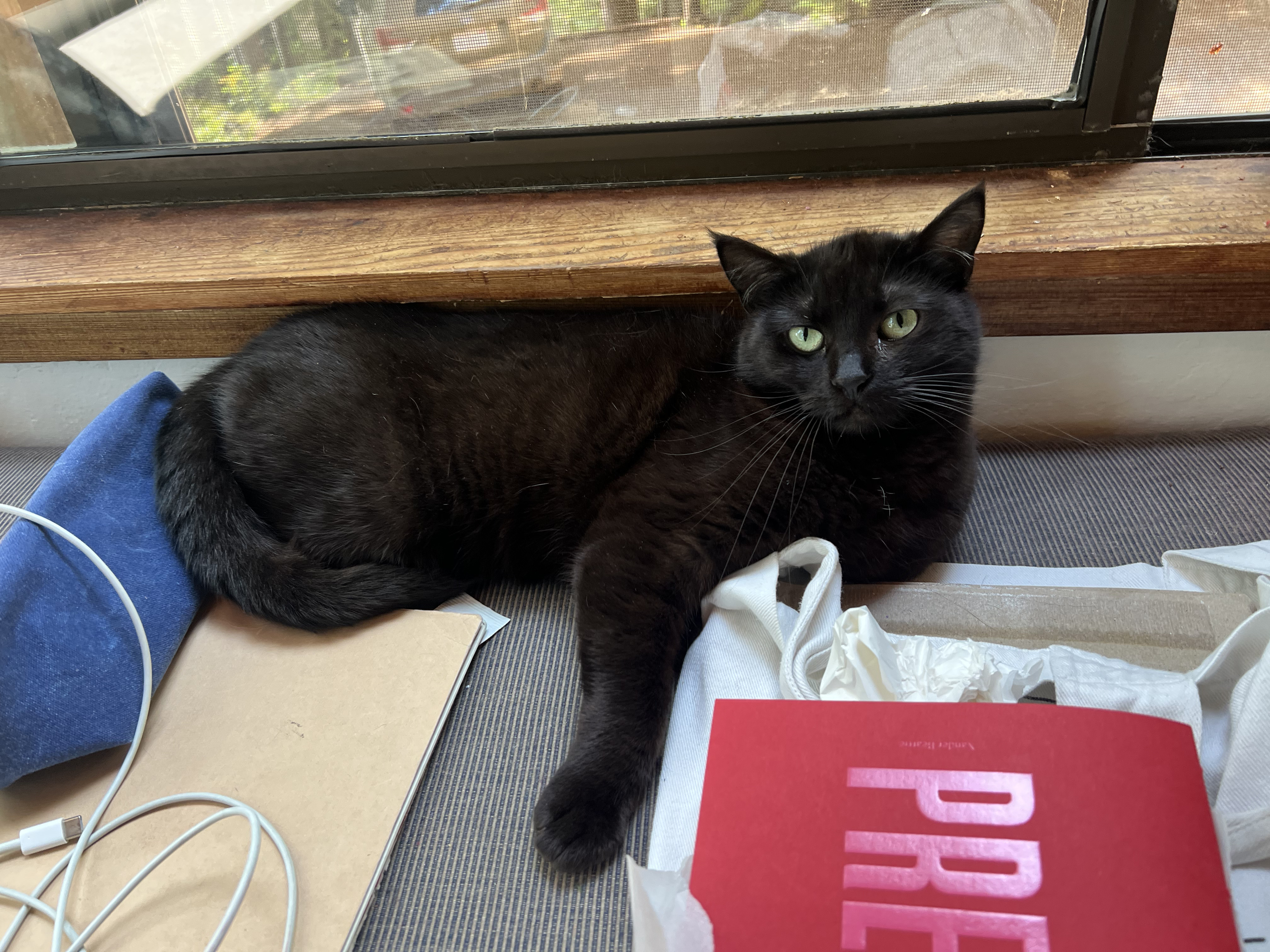
On 11 July (or July 11 if you’re going to be all 🇺🇸🇺🇸🇺🇸 about it), I’ll be in conversation with the fabulous speculative fiction writer and essayist Ploi Pirapokin about my novel, The President, at Et al. Gallery in San Francisco (the reading and talk starts at 7pm sharp). There’ll be pizza, art and people-watching galore. Hope to see you there! RSVP here.
Nina is not only a gifted thespian — she’s also an incredible teacher, writer and thinker. She is co-director of the Stellenbosch University’s Centre for Sustainability Transitions through which I recently did a postgraduate diploma in sustainable development. It was a pleasure and privilege to be taught by her in two of my modules. ↩
Afrikaans — roughly translated it means “pull out my soul”. ↩
